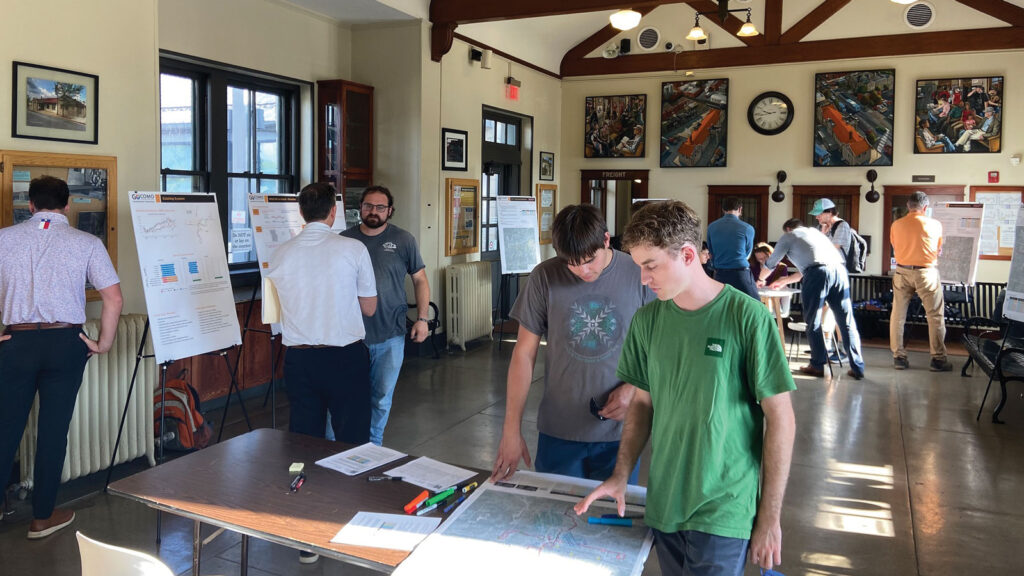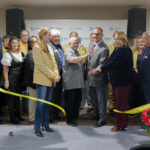It may seem the city of Columbia is always hiring another consultant. Maybe it’s a requirement. Or maybe, it’s just a smart move.
Consultants have been around for centuries. Consulting was essentially what advisors delivered to kings and other people in positions of authority. The term “consultant,” from the French “consultare,” which means “to take the advice of,” was first coined at the end of the 16th century. Today, it’s a multi-billion-dollar industry.
The city of Columbia has contributed its fair share to the consulting sector throughout its existence. You can’t read the news without bumping into information about the hiring, work, and reporting of a consultant for one purpose or another. Have you ever wondered why? Ever wondered how the process works?
Two Key Reasons
Perhaps no city department uses consultants more than the Department of Public Works. Shane Creech, director, cites two primary reasons why using consultants is beneficial.
“In public works, we hire consultants for many reasons, but it’s usually for one of two things,” he explained. “It makes my staff bigger, meaning my staff is working on road projects, sidewalk projects, and that kind of thing. So, if I want to do more projects in the same period of time, consultants help me do that from an engineering perspective.”
Another reason is expertise.
“For instance, I don’t have an architect on staff,” Creech added. “So, if we’re building a new building or something that requires an architect, we’ll almost always see that done by a consultant. We’ll hire an architecture firm to design that building.”
Creech, who is a civil engineer by education and training, says the city frequently hires structural engineers to work on bridge projects because structural engineering is a highly specialized area. That expertise is particularly necessary for those types of projects. But which consultant is hired begins with a city ordinance.
The Technical Requirements
City of Columbia Ordinance 024847 was approved by the City Council in November 2021. It repealed the prior 1999 ordinance, updating its “procedure and guidelines for procurement of architectural, engineering, and land surveying services.”
The ordinance prescribes the criteria for consultants in those areas, including their demonstrable background and relevant experience, reputation, availability to perform the work in a timely manner, references, and the background and experience of individuals at the firm who will be performing the work.
If that sounds like the typical job interview, you aren’t wrong. But constantly vetting consultants every time they’re needed is cumbersome, especially for smaller jobs, which is why the city maintains a list of pre-qualified consultants. The list includes approved firms in general, electrical, mechanical, and water engineering, architects, and surveyors. Firms complete and submit a federal application which is reviewed by public works officials, whose recommendations are then forwarded to the city manager for pre-qualification approval.
When departments need to hire consultants, they submit a scope of services to the city manager along with their recommendation for which pre-qualified firm to contract with. The city’s purchasing agent can issue a purchase order without a contract for work by a pre-qualified firm if the cost of its services is less than $20,000, the department needing the work has the budget for it, and the city’s risk manager determines the project is low risk for liability.
The city manager can enter into an agreement without a formal bid process if the cost of a pre-qualified firm’s professional services is less than $50,000. Projects that cost $50,000 to less than $250,000, or those that haven’t been budgeted for, require a request-for-qualifications process and contract approval by the City Council. Pre-qualification at that level doesn’t apply.
Once that $250,000 mark is reached, if the project requires special expertise, and those that have unique requirements for funding from sources such as the state and federal governments, the city issues a Request for Qualifications to invite consultants to vie for a contract. Those include Missouri Department of Transportation (MoDOT) enhancement projects and virtually anything related to Columbia Regional Airport improvement projects.
Those thresholds are specifically for hiring engineering, architectural, and land surveying firms. Some projects require other types of consultants. If the cost of those is $15,000 or more for a fiscal year, a formal request for proposals is published and administered through the city’s purchasing division. Consultants interested in the job can submit proposals to be vetted subjectively and objectively.
When the feds are involved or there’s a grant to apply for or administer, using a consultant is often a requirement. That is especially true for taxpayer-funded projects that seek voter approval for bond issues. The bonding company will insist on consultant expertise for determining the viability of projects and revenue to pay off the debt.
Following the Rules
Cale Turner is the city’s chief purchasing officer. It’s his job to ensure that hiring consultants meets the requirements of the ordinance as well as grants and other funding.
“It’s my job to administer the procurement process,” Turner said. “Then, we also do the contract compliance side of it. That includes things like bonding, prevailing wage, insurance, renewals, and breach of contract issues. If a project has received a grant, I have to see that documentation and make sure we’re following all the requirements of the grant.”
For example, virtually every project at the airport receives partial funding from the FAA. Those grants have highly specific requirements when applying for them as well as once the funding is in the city’s coffers.

Case in Point: Transit
Transit is a constantly moving target for the city. It gathers more than its fair share of headlines, especially when yet another study is being conducted to improve Go COMO. The last major transit study was completed in 2016-2017. Since then, transit has been altered by road additions and infrastructure changes. It’s also been significantly reshaped by the pandemic which affected ridership and the ability to attract and retain bus drivers.
For more than a year, a national engineering consulting firm, Olsson, has been conducting a study to develop an improved transit system for Columbia. There have been three public meetings, in November 2023, and April and August 2024, as well as surveys designed to gather public input. Olsson melds that information with its knowledge of transit systems.
“We’ll have a work session with the council the first meeting in November,” Creech says. “The consultant will present an overview of the whole process, the input they gathered, and what their recommendations are. Then the council will have to approve the plan, and that will direct our work going forward.”
He continued, “I’ve got a dedicated transit staff that knows our transit system frontwards and backwards. But when you ask us to look at putting together a plan for the future of transit, we really benefit from a consultant that does that kind of work, has that kind of experience, has gone through this process before, and knows what other transit systems and agencies do all over the country. They make recommendations based on things they’ve seen work or things they’ve seen people try that haven’t worked. It’s that expertise we need.”
Sound Advice
Even when public works has the proper engineering expertise in house, there are times when it makes sense to hire a consultant.
“We do a lot of sidewalk projects in house. But we’ve been lucky to get quite a bit of MoDOT matching money through grants,” Creech says. “We have to weigh what’s already on our plate and take advantage of grants to sometimes hire a consultant. Where I can leverage grants to make our money go farther, I believe that’s in the best interests of the citizens of Columbia. That might mean I pay a little bit more to have a consultant design it. But I can then have my folks working on other projects.”
It’s not realistic for a city to put every type of expertise on the payroll. Never mind the fact that over time, their perspective and experience would become parochial. Sometimes, it takes an outsider to help Columbia move forward.










